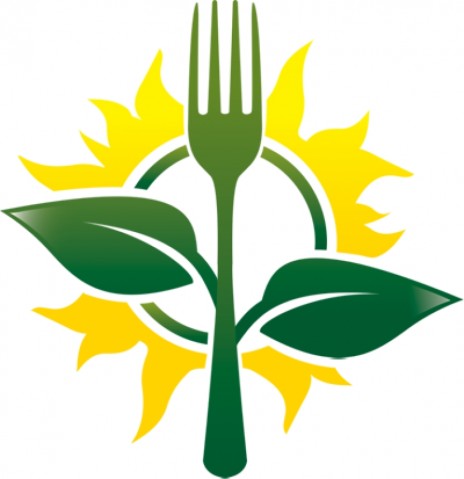DrCarney.com Blog
Starch-Smartest
Ideally Suited for:
For those wanting to stop or reverse a diagnosed disease condition or those wanting a cleansing diet to reset their taste buds.
Calories from Fat:
~ 10% calories from fat.
Vegetables:
Vegetables should be a cornerstone of your strategy to restore health, and the basis of breakfast. Eat vegetables cooked or raw, but not juiced or blended. Dark green, leafy vegetables are especially healing because they repair the arteries which then allows the blood to distribute oxygen and nutrition to the millions of cells in the body. Three to six servings of greens a day is recommended for healing. Sweet potatoes (or starchy tubers) are recommended as a daily essential. Smoothies may be necessary for those with limited ability to chew.
Legumes/Beans:
Breakfast and lunch should include beans, lentils, or peas for energy, satiety, and nutrition while the body is healing. Since a therapeutic diet must be based on very simple whole foods, even tofu and Soy Curls cannot be recommended for those wanting to reverse disease or lose large amounts of weight. Do not eat hydrolyzed soy protein and soy protein isolates.
Grains:
All grains or grain-like seeds must be unprocessed (except for cooking), whole and intact. Grains should be cooked to help break down the strong cell walls so that the body can best access the nutrition in them. Because grinding grains into flour is a form of processing, the seriously ill should avoid food products made with flour of any kind.
Fruits:
Fruit and well-cooked grains make a light evening meal which allows the digestive tract to be finished with its work before bedtime, giving us the deepest, most replenishing sleep. Dried, juiced, or blended fruits are processed foods and therefore are not recommended.
Animal Products & Meat Substitutes:
Research shows conclusively that there are no animal products which produce optimal health or healing. Avoid all meat, eggs, and dairy products--no exceptions. Because low-fat tofu and Soy Curls are minimally-processed, higher-fat foods, they should be excluded from a therapeutic diet.
Oils, Nuts, Seeds, and other High-Fat Foods:
In order to heal the circulatory system, all added oil is strictly forbidden. Walnuts, or chia seeds, or freshly-ground flax may occasionally be included in the diet, but not more than 2 oz. per week. Total avocado use should be restricted to 1/2 an avocado per month. No coconut should be eaten at all in order to regain health.
Timing of Meals and Snacks:
Beans, greens, squash, and yams are the categories of plant foods which should be eaten at breakfast and lunch. Intact whole grains can be added for satiety. A large breakfast should be eaten before 8:00 a.m. Lunch should come no sooner than four hours after breakfast and be a slightly smaller meal. A supper of fruits and well-cooked whole grains should be finished by 6:00 p.m. to allow for restful, healing sleep. Some people do better on two meals a day, one a vegetable/legumes (and perhaps whole grains) meal and the other a fruit/whole grains meal. Avoid eating vegetables and fruit at the same meal in order to promote optimal digestion. Eat enough calories at meal times and drink water between meals.
Salt & Sugar:
Salt and sugar are health-damaging additives. Avoid the use of salt and sugar if at all possible. Lemon juice, herbs, and seasonings are good substitutes for salt. Whole dates may be used sparingly to sweeten food.
Vinegar, Chilis, Irritating Spices, and Other Condiments:
Most condiments contain sugar, oil, or high levels of sodium. Vinegar, spicy chilis, and black pepper may irritate and eventually damage the respiratory or digestive mucous membranes. Do not use any of these substances. The natural flavors of food will become more appealing as our taste buds heal, and we can find recipes for condiments that do not contain any of these questionable ingredients.
Beverages:
Drink two glasses of water before breakfast to start the digestive tract working. Aim for at least eight glasses of water per day. Two glasses should be finished 30 minutes before breakfast. Finish three more glasses before noon. By 5:00 PM finish the majority of the day's water so that at bedtime the bladder will be empty.
Alcohol:
Alcoholic beverages hinder disease reversal.
Bedtime:
To give our body the ideal conditions for healing. Plan to be asleep by 9:00 PM. Our body repairs itself best in the hours before midnight.
Note:
Weight goals should determine the calorie concentration of food choices.
Starch-Smart® Links
Scroll Down Page to Leave Comments

What Have You Got to Lose?
Fight the Obesity Epidemic! We provide Starch-Smart Support through our Helpful Sharing Community, Discussion Forums, and Blogging Platform.
When you subscribe to the blog, we will send you an e-mail when there are new updates on the site so you wouldn't miss them.




